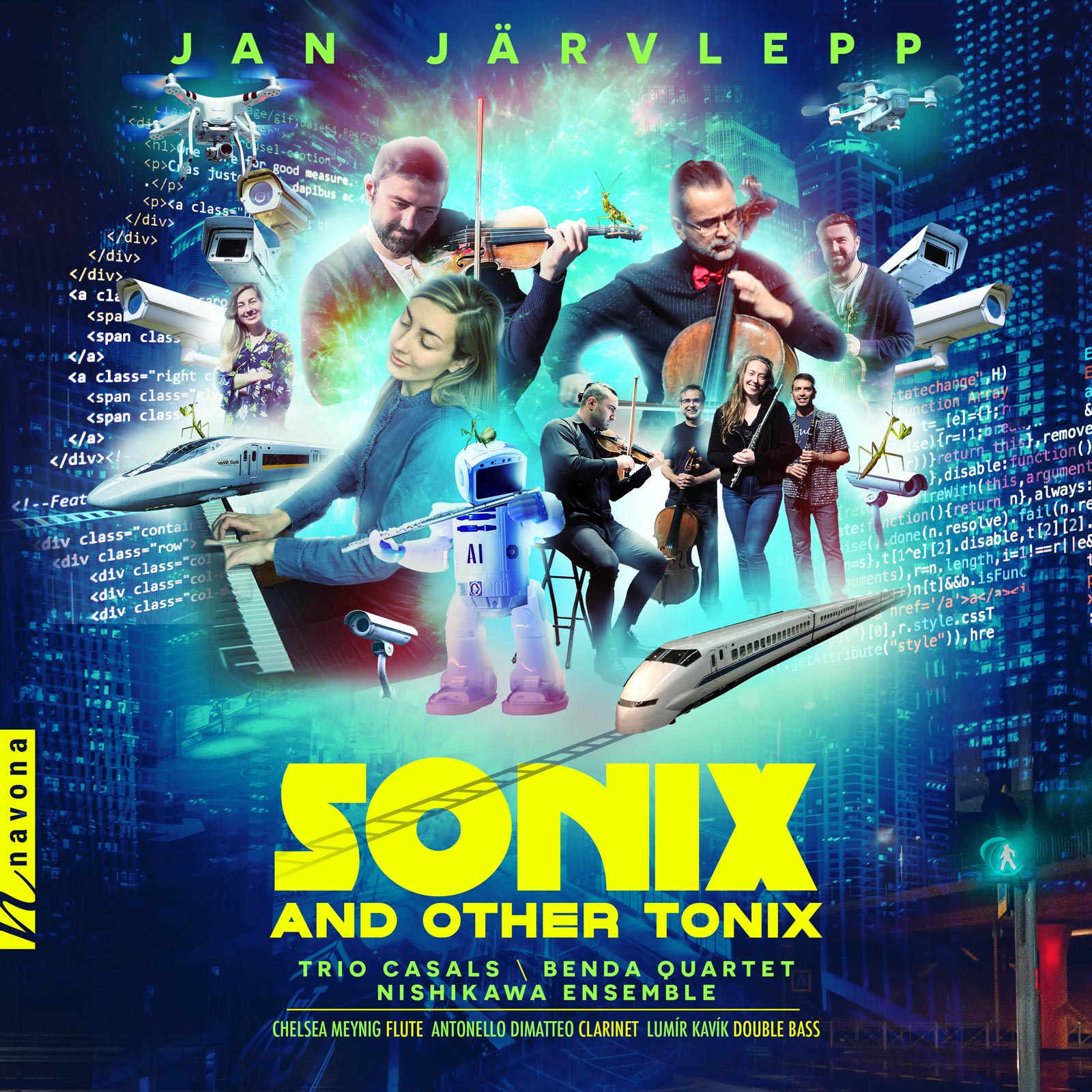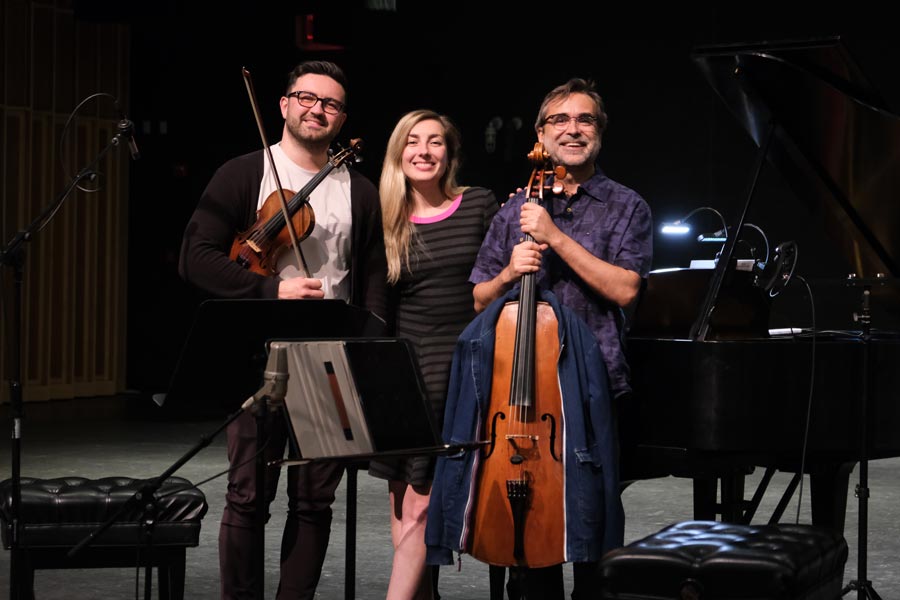Sonix and other Tonix
Jan Järvlepp composer
Trio Casals
Benda Quartet
Nishikawa Ensemble
Chelsea Meynig flute
Antonello DiMatteo clarinet
Lumír Kavík double bass
SONIX AND OTHER TONIX is a collection of innovative chamber works from composer Jan Järvlepp. The title refers to his piece Sonix for Ónix, composed for the Ónix Ensamble of Mexico. It combines elements from his most popular chamber and orchestral works, Pierrot Solaire and Garbage Concerto, respectively. The album also features Trio No. 3, a three-movement work for violin, cello, and piano which protests the rise of the surveillance state. SONIX AND OTHER TONIX also includes Shinkansen, which takes listeners for a ride on a Japanese bullet train, and In Memoriam, written for the composer’s late brother. Spanning a diverse range of topics and influences, SONIX AND OTHER TONIX exemplifies the iconoclastic creativity for which Järvlepp is known.
Listen
Stream/Buy
Choose your platform
Track Listing & Credits
| # | Title | Composer | Performer | |
|---|---|---|---|---|
| 01 | Sonix | Jan Järvlepp | Chelsea Meynig, flute; Antonello DiMatteo, clarinet; Trio Casals | Alexandr Kislitsyn, violin; Ovidiu Marinescu, cello; Anna Kislitsyna, piano | 9:00 |
| 02 | Trio No. 3: I. Surveillance Cameras Everywhere | Jan Järvlepp | Trio Casals | Alexandr Kislitsyn, violin; Ovidiu Marinescu, cello; Anna Kislitsyna, piano | 7:57 |
| 03 | Trio No. 3: II. Constant Telephone and Internet Surveillance | Jan Järvlepp | Trio Casals | Alexandr Kislitsyn, violin; Ovidiu Marinescu, cello; Anna Kislitsyna, piano | 7:19 |
| 04 | Trio No. 3: III. Drones | Jan Järvlepp | Trio Casals | Alexandr Kislitsyn, violin; Ovidiu Marinescu, cello; Anna Kislitsyna, piano | 6:14 |
| 05 | Trio No. 5: I. Strength in the Face of Adversity | Jan Järvlepp | Benda Quartet | Jakub Černohorský, violin; Petr Benda, viola; Tomáš Svozil, cello | 8:30 |
| 06 | Trio No. 5: II. Freedom | Jan Järvlepp | Benda Quartet | Jakub Černohorský, violin; Petr Benda, viola; Tomáš Svozil, cello | 5:36 |
| 07 | Shinkansen: I. Waiting | Jan Järvlepp | Nishikawa Ensemble | Kohei Nishikawa, flute & shinobue; Hideko Nara, piano; Patrick Graham, percussion; Jan Järvlepp, cello | 4:06 |
| 08 | Shinkansen: II. Bullet Train | Jan Järvlepp | Nishikawa Ensemble | Kohei Nishikawa, flute & shinobue; Hideko Nara, piano; Patrick Graham, percussion; Jan Järvlepp, cello | 6:07 |
| 09 | Insect Dance | Jan Järvlepp | Anna Kislitsyna, piano | 5:15 |
| 10 | In Memoriam | Jan Järvlepp | Benda Quartet | Jakub Černohorský, violin; Petr Grabovský, violin; Petr Benda, viola; Tomáš Svozil, cello; Lumír Kavík, double bass | 7:51 |
Tracks 1-4, 9
Recorded June 15, 16, 2023 at the Madeline Wing Adler Theater at the West Chester University US
Session Producer & Engineer Brad Michel
Assistant Session Engineer Melanie Montgomery
Editing and Mixing Melanie Montgomery
Tracks 5-6
Recorded August 21, 2023 at Czech Radio Ostrava in Ostrava, Czech Republic
Session Producer, Editing Jan Košulič
Session Engineer Aleš Dvořák
Additional Editing & Mixing Melanie Montgomery
Tracks 7-8
Recorded December 1, 2002 at Salle des Jeunesses Musicales in Montréal, Québec, Canada
Session Producer Jan Järvlepp
Session Engineer John Winiarz
Assistant Session Engineer Ryan Patterson
Editing & Mixing Jan Järvlepp
Track 10
Recorded February 2, 2021 at Dům Kultury města Ostravy (The Ostrava House of Culture) in Ostrava, Czech Republic
Session Producer Jan Košulič
Session Director Levi Brown
Session Engineer Aleš Dvořák
Editing & Mixing Brad Michel
Mastering Melanie Montgomery
Executive Producer Bob Lord
VP of A&R Brandon MacNeil
VP of Production Jan Košulič
Audio Director Lucas Paquette
Production Manager Martina Watzková
Production Assistant Adam Lysák (Tracks 1-6, 9)
VP, Design & Marketing Brett Picknell
Art Director Ryan Harrison
Design Edward A. Fleming
Publicity Aidan Curran
Artist Information
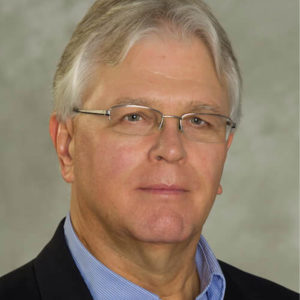
Jan Järvlepp
Composer Jan Järvlepp creates a genuine European/American musical fusion by combining the excitement of rock and jazz rhythms with the large-scale classical structures found in orchestral and chamber music. The seriousness of his well-thought-out forms and the immediacy of contemporary rhythmic and melodic ideas make a potent brew that is appealing to both open-minded classical listeners and pop music listeners who are searching for something new.
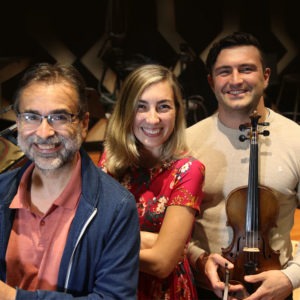
Trio Casals
Since making a highly-praised debut at the 1996 edition of the Pablo Casals Festival in Puerto Rico, Trio Casals has delighted audiences with spectacular virtuosity, engaging enthusiasm, and exquisite musical elegance. Consisting of pianist Anna Kislitsyna, violinist Alexandr Kislitsyn, cellist Ovidiu Marinescu, Trio Casals has released several commercial albums with PARMA Recordings and Navona Records to critical acclaim, from the beloved MOTO series to A GRAND JOURNEY and more.
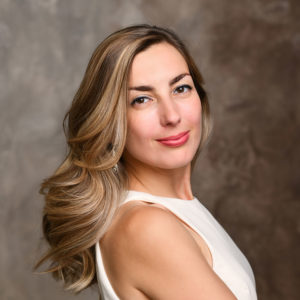
Anna Kislitsyna
Pianist and harpsichordist Anna Kislitsyna made her solo debut at age 10 with the Omsk Symphony Orchestra. She remains in high demand as a soloist, collaborative pianist, and educator. Recent season highlights include five new album productions with PARMA Recordings and two release concerts in Carnegie Hall’s Weill Recital Hall, performing Haydn and Shostakovich Piano Concertos with Helena Symphony and Southeastern Pennsylvania Symphony Orchestra, and returning to the Omsk Philharmonic as a soloist to give the inaugural performance on the new harpsichord.
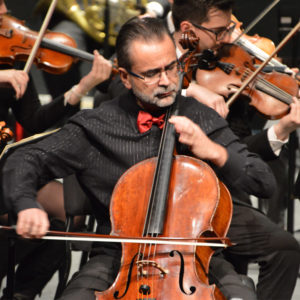
Ovidiu Marinescu
Ovidiu Marinescu, a native of Romania, is active as a cellist, conductor, composer, and educator. He has performed at Carnegie Hall, Merkin Hall, the Great Hall of the Moscow Conservatory, Rachmaninov Hall, Holywell Room in Oxford, Oriental Art Center in Shanghai, and many other venues around the world. He has appeared as a soloist with the New York Chamber Symphony, the National Radio Orchestra of Romania, Moscow Chamber Orchestra, Helena and Newark Symphonies, Southeastern Pennsylvania Symphony Orchestra, the Cleveland Philharmonic, Limeira Symphony in Brazil, Orquesta de Extremadura in Spain, and most orchestras in Romania.
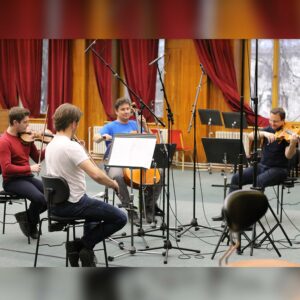
Benda Quartet
Since the Benda Quartet began performing in 2012 they have achieved a wide variety of musical successes and established themselves among highly respected Czech ensembles. Their first significant landmark was the concert debut they performed at the 60th Jubilee of the Janacek Philharmonic Orchestra in Ostrava in April 2014. The concert was recorded by Czech Radio and garnered a huge audience acclaim. Since then has the collaboration with the studio of Czech Radio continued on regular basis and resulted in a number of publicly appreciated recordings. The Benda Quartet have worked intensively together with the Janáček Philharmonic Orchestra and artist management agency Janáčkův Máj on numerous chamber music and educational projects.
